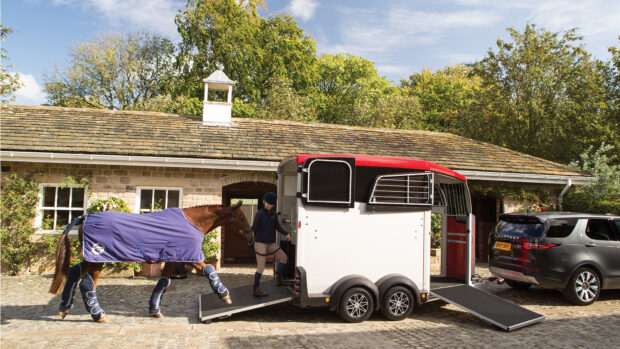Q. I have just bought a second-hand, five-year-old trailer. It is in quite good condition and I would like it to last for many years. Is it necessary for horse trailers to undergo an MOT test in the same way as a motor vehicle? Also, should I have the trailer serviced? If so, what should be done and would this have to be carried out by the original manufacturer?
John Henderson replies: Britain is one of the few countries in Europe where trailers don’t have to undergo an MOT-type test.
In most of Europe, trailers have to be registered, allowing control over testing and making theft harder. Anything with moving parts has to be serviced, including trailers .
I hope you thoroughly checked the floor before buying your trailer and will continue to check it on a regular basis – horses can suffer horrible injuries if flooring gives way.
If you’re an inexperienced trailer owner you should certainly have it checked and serviced, initially by a trailer dealer, to make sure everything is in good order.
It is best to get this done by a dealer specialising in your make of trailer, but it’s not vital as mechanical parts for trailers are usually bought in from a limited number of manufacturers so most have the same bits. If you don’t have a local trailer dealer, a caravan dealer might help.
However, most trailer servicing operations are within the abilities of anyone capable of wielding a spanner.
The maker of your trailer may be able to supply a handbook for the model year or you’ll find my book Trailer Maintenance (JA Allen Photographic Guides, £4.95) explains all the jobs.
Essential tools are a grease gun, tub of LM grease, oil can, a set of spanners, four axle stands and a jack (a trolley jack is best). Also, make sure you have a wheel brace which fits the trailer wheel nuts because some towcars, notably Land Rovers, use bigger nuts.
The simplest job is lubrication. You’ve probably noticed the grease nipples behind the hitch for which you need the grease gun – this needs doing every 2,000 to 3,000 miles.
At the same time, clean old grease out of the hitch cup with a paintbrush and white spirit and, when dry, smear some grease inside it and oil its moving parts. Examine the tyres and replace any that are damaged or starting to perish.
Make sure your tyre dealer knows most horse trailers need tyres with a higher weight rating than a car.
Bolts, especially those holding on axles and hitches, should be checked fortightness every 2,000 miles. At the same time, there are inspection holes in the backs of the brake drums through which you can check the amount of friction material on the brake shoes, after removing a plastic bung.
If there is less than 1.5mm of friction material, the shoes need replacing, which is a complicated job for which you’ll need your trailer’s handbook or the book I mentioned earlier.
Most cars have self-adjusting brakes but trailer brakes must be adjusted to make up for wear every 2,500 to 3,000 miles.
If you are unsure about any maintenance job or the condition of anything on your trailer, I recommend you seek professional advice. Also, remember you must never work under a trailerwhich is only supported by a jack.
Read more trailer advice:



